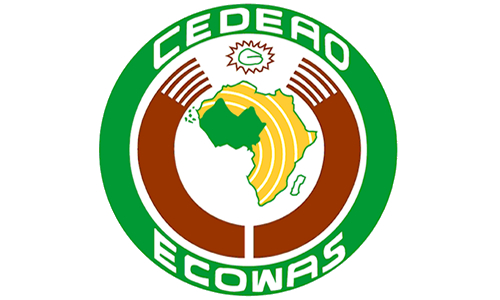
Ecowas has launched a project to increase women’s participation in conflict prevention and peacebuilding.
Known as “Support to national early warning and response mechanism in harnessing gender empowerment as a tool to strengthen human security”, the project is being implemented under the auspices of the ECOWAS Directorate of Early Warning.
It will highlight the importance of women in conflict prevention, build their capacity and increase advocacy on the need to make women cardinal principals in conflict prevention and peace-building processes in ECOWAS member countries.
It is also designed to identify and address structures that drive the gender gap to ensure inclusiveness at all levels of early warning mechanisms and conflict prevention.
As part of the launch, the ECOWAS Commission also organised a two-day workshop in Accra for women groups, civil society organisations (CSOs), security experts and other stakeholders in conflict prevention and peacebuilding from across the sub-region.
Improve security
The Vice-President of the ECOWAS Commission, Damtien L. Tchintchibidja, said women had consistently played key roles in peacebuilding and conflict prevention and, therefore, the need to further build on such initiatives to improve security in the sub-region.
She cited the 2015 Mali Peace Agreement and said women were instrumental in the negotiations leading to the agreement.
“Indeed the acknowledgement of the complex role of gender in human security has facilitated the adoption of many international and regional instruments to foster women’s participation in conflict prevention,” Mrs Tchintchibidja added.
The project, she said, would also help operationalise the ECOWAS framework on national early warning and response mechanism that sought to strengthen the capacity of member states in detecting and addressing issues of security.
Mrs Tchintchibidja further said that the West African sub-region faced serious security challenges, especially in the Sahel region, adding that due to conflicts, about 46,000 refugees from Burkina Faso had fled to countries such as Cote d’Ivoire, Benin, Ghana and Togo, with many internally displaced people in countries such as Nigeria, Niger and Mali.
“Despite efforts made at all levels in gender policies aimed at improving peace and human security, a lot still needed to be done,” she said.
Attainment of SDGs
The United Nations (UN) Resident Coordinator, Charles Abani, said peace was the foundation of development and was key in achieving the UN Sustainable Development Goals.
He, therefore, lauded ECOWAS for launching the project to help empower women for sustainable peace and development and added that “women play key roles in reconciliation and return to peace after men express their testosterone on the battlefield”.
Mr Abani said it was unacceptable that despite the rising population of women, coupled with the key roles they played in various sectors, they were still relegated to the background in leadership roles.
“For instance, according to the population census, about 50.7 per cent of Ghana’s population are women but unfortunately the representation in Parliament is at 14 per cent,” he said.
For his part, the Director of ECOWAS Early Warning, Dr Gueye Abdou Lat, added that the project would promote peace and security in the sub-region in line with the UN, AU and ECOWAS resolutions and framework on peace.
Source: graphic.com.gh























